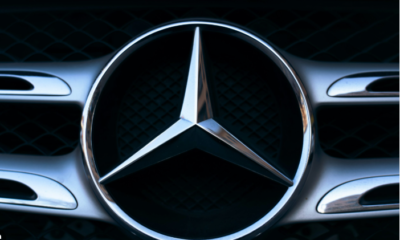Motoring
Engine Fires and Faulty Seatbelts: Nearly 2,000 Vehicles Recalled in South Africa

Ford and VW in Hot Seat Over Safety Recalls
If you own a Ford Puma or a VW Polo Sedan in South Africa, now’s the time to check your vehicle—and fast. Two of the country’s biggest automotive brands have issued urgent safety recalls affecting over 2,000 cars across the region. The stakes? Engine fires and malfunctioning seat belts.
And this isn’t just routine maintenance. These are life-or-death issues.
Ford Puma Recall: A Fuel Leak Waiting to Ignite
Ford Motor Company of Southern Africa has recalled 1,796 Puma vehicles, with nearly every single one—1,775 units sold in South Africa. The issue? A faulty fuel line that could rub against a metal bracket, slowly wearing down and potentially leaking fuel.
That might not sound dramatic—until you realise it can cause your engine to stall or even catch fire.
The affected models were built between November 2021 and September 2024. According to Ford, drivers should be on the lookout for signs like the smell of petrol, visible leaks under the car, or smoke from the engine bay. If any of that sounds familiar, stop driving and get your vehicle inspected.
Ford says it’s already contacting customers and offering free inspections and repairs through its dealership network. You can also check your VIN on www.ford.co.za/owner/recalls or call 0860 011 022 for help.
VW Polo Sedan: When Seat Belts Become a Risk
Just as Ford was grappling with fuel-line problems, Volkswagen announced its own recall, this time for safety belt defects in the Polo Sedan.
Initially, 253 vehicles built from August 2022 were flagged for a rear seat belt installation issue. Then, in a separate recall just days earlier, another 18 Polo Sedans were found to have incorrect seat belt webbing. All in, that’s 271 vehicles being called in.
While it might seem minor, faulty seat belts can mean the difference between walking away from an accident or suffering serious injury or worse.
“This is safety-critical,” warned National Consumer Commission spokesperson Phetho Ntaba. “Consumers must act urgently. These faulty belts can fail in a crash.”
Volkswagen is offering free inspections and replacements through its authorised dealerships. Concerned owners should waste no time reaching out.
South African Drivers React: Trust Erodes
On local forums and social media, many South African car owners voiced concern, with some calling for greater transparency and tighter safety regulations.
One Twitter user wrote, “When you buy a new car, you don’t expect a fire hazard or broken seat belts. These recalls make me question every test they claim to do before a car hits the market.”
Others took a more resigned tone: “So, I’m driving a fire trap and didn’t even know it? Wow.”
The National Consumer Commission has urged all motorists to take recall notices seriously, reminding consumers that manufacturers are obligated to fix safety defects free of charge, but drivers must take the first step.
Not the First Time
Ford owners might feel a sense of déjà vu. Back in 2017, the brand was mired in controversy after several Kuga models caught fire, leading to public outcry and a regulatory crackdown. While Ford has since worked to restore consumer confidence, this latest recall threatens to reopen old wounds.
Volkswagen, too, has had its share of safety issues in the past, although typically on a smaller scale. Still, with nearly 300 vehicles recalled in a single week, it’s a worrying sign that even trusted brands aren’t immune to serious quality-control lapses.
What Should You Do Now?
If you drive one of these models, don’t wait for something to go wrong. Here’s what you can do:
For Ford Puma owners:
-
Visit ford.co.za/owner/recalls and enter your VIN
-
Call 0860 011 022 or email [email protected]
-
Book an inspection at your nearest Ford dealership
For VW Polo Sedan owners:
-
Contact your nearest VW dealership
-
Ask for a seat belt inspection under the latest recall
-
Don’t delay, it’s a simple check that could save lives
A Wake-Up Call for SA’s Car Market
This spate of recalls is more than just a technical hiccup. It’s a wake-up call for automakers, dealerships, and regulators to double down on quality and communication.
For South African consumers, it’s a reminder: don’t ignore that email or letter about a recall. Your safety and that of your loved ones might depend on it.
{Source: BusinessTech}
Follow Joburg ETC on Facebook, Twitter , TikTok and Instagram
For more News in Johannesburg, visit joburgetc.com



























